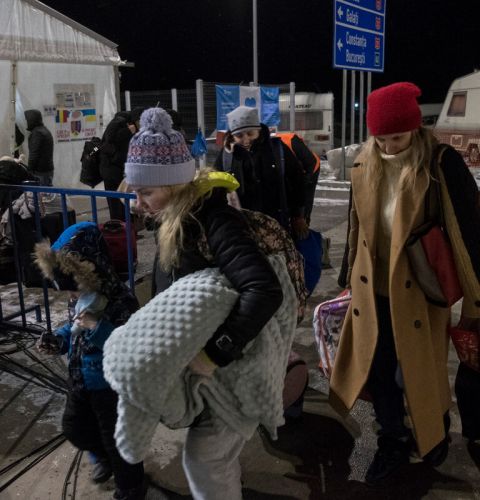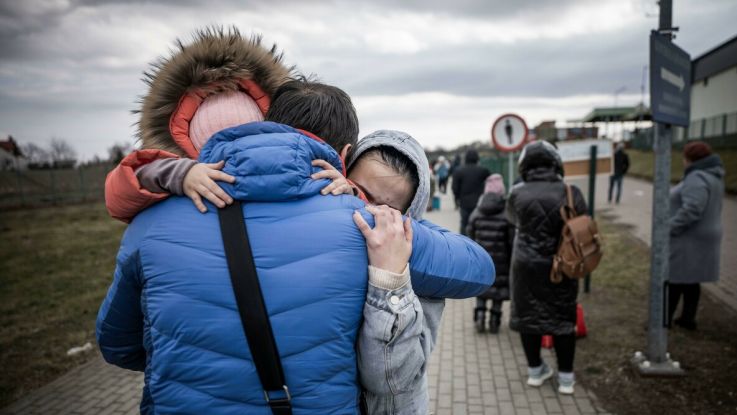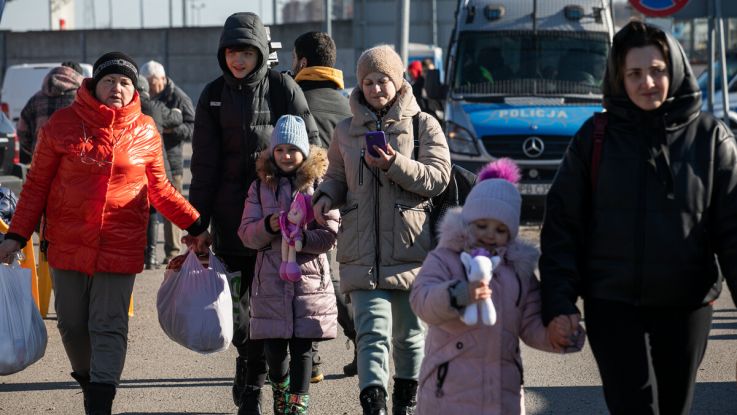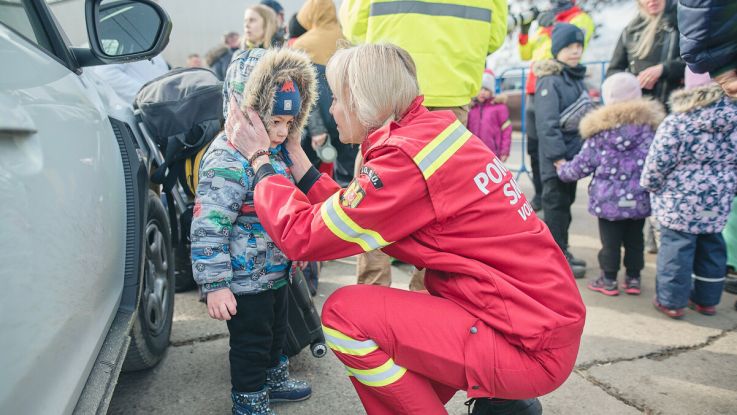Russia-Ukraine war
Kherson dam disaster June 2023
On the 6th June 2023 the dam of Kakhovska Hydroelectric Power Plant in Kherson was breached and subsequently destroyed. The catastrophic flooding that resulted from the collapse affected over 17,000 riverside communities in at least 37 towns and villages.
This was the most significant incident of damage to civilian infrastructure since the start of the war in Ukraine, and has had far-reaching consequences.
Thousands of hectares of agricultural land have been flooded, disrupting food production and supply lines as well as access to drinking water for millions of people.
In the aftermath of the disaster, ActionAid has been working with four partner organisations in the region to support communities, including by:
- Distributing multipurpose cash transfers to families affected by the flooding
- Supplying purifying water pills, hygiene kits, food kits, medical supplies, and other essentials
- Helping communities with equipment like water pumps, pipelines and fuel.
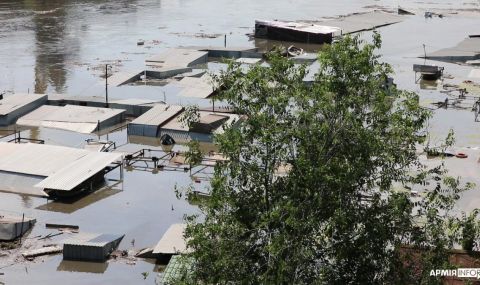
Kherson dam disaster June 2023 .
Why did Russia invade Ukraine?
Today’s Russia-Ukraine war is a conflict that dates back to 2014, when Russia invaded Crimea in the south of Ukraine (Russia continues to occupy it).
Since then, Russian-backed separatists and Ukraine's armed forces have been fighting a war in the eastern regions of Donetsk and Luhansk, in which more than 14,000 people have died.
President Putin has recognised the two regions held by the Russian-backed separatists as independent states, and ordered Russian troops there, tearing up a peace deal.
Then in early December 2021, US intelligence officials determined that Russia was planning to deploy as many as 175,000 troops near Ukraine’s border in preparation for a possible invasion. This began in February 2022.
The Russian leader's initial aim was to overrun Ukraine and depose its government, ending for good its desire to join the Western defensive alliance Nato.
But he has told the Russian people his goal was to "demilitarise and de-Nazify Ukraine", and to end an alleged genocide by Ukraine's government.
Putin is known to deeply resent what he considers to be Nato’s gradual shift east since the collapse of the Soviet Union in 1989, and is determined to block Ukraine from joining Nato.
Map: Ukraine and surrounding countries
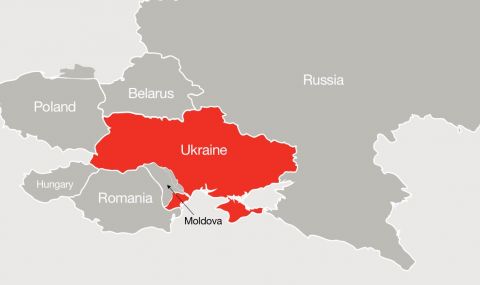
A map of Ukraine, Russia and the countries to which most refugees are fleeing.

Latest news: what ActionAid is doing to help refugees from Ukraine
As of June 2023 ActionAid’s emergency response to this disaster has reached more than 1.7 million people in total. This includes those supported in Ukraine as well as neighbouring countries to which refugees have fled: mainly Poland, Romania and Moldova.
Our response has included food assistance for more than 40,000 people, cash transfers, shelter and psychosocial support for thousands of people who have experienced trauma – particularly vulnerable women and girls.
In Ukraine, we are working with local partners to prevent and respond to the soaring cases of gender-based violence and helping to provide food, shelter and medicines within communities whose infrastructure has been shattered. Throughout the winter period we also supported with the provision of generators.
And in neighbouring countries Poland, Moldova and Romania we are putting women, girls and other vulnerable communities at the heart of our response. This includes emergency aid and ongoing support for older people, people living with disabilities, the LGBTQIA+ community and sex workers, including counselling, legal support and livelihoods training.
ActionAid staff working on the Zosin crossing point on the Polish Ukraine border
Simona Supino/ActionAid
What are the risks for women and girls in the Ukraine war?
As in all humanitarian crises, women and girls have been hit hard by this disaster.
As a feminist organisation, we are extremely concerned about the impact on women and girls, who are at an increased risk of gender-based violence, trafficking and exploitation during emergencies, especially when displaced from their homes.
Access to basis services like sexual and reproductive healthcare and information has been severely disrupted within Ukraine, putting women and girls at serious risk.
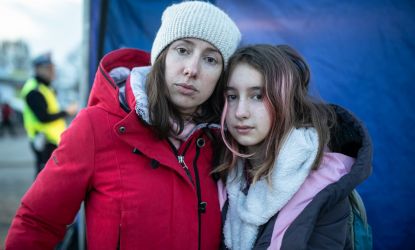
Maryia*, aged 35, and her 11-year-old daughter Natalia* fled from Ukraine after spending 12 days in a basement
Simona Supino/ActionAid
Fleeing Ukraine: Maryia's* story
Maryia*, 35, and her 11-year-old daughter Natalia* fled from Ukraine after spending 12 days in a basement while their city was bombarded. They had to run for their lives and leave Maryia’s husband behind. Maryia does not know when she will see him again.
“We were under fire,” she told us. “It was very scary, and I cannot describe it well.”
“I cannot say how long we are going to stay here, I do not know, but it is extremely hard. Our city is under heavy fire now. They want to wipe it off from the earth.”
“Many clinics, kindergartens, schools, and residential buildings have been destroyed. I do not know if our building has survived.”
“We support each other here - we try. It is extremely hard for the child now without a father.”
At this stage of our lives, it is important for us to have a peaceful sky; a peaceful place to live.”
*Names changed to protect identities
Page updated 8 April 2025
